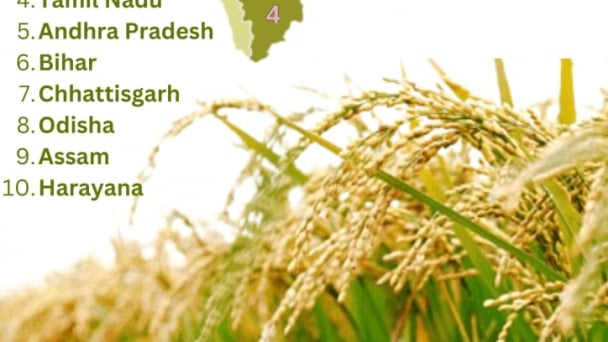June 22, 2025 | 01:37 GMT +7
June 22, 2025 | 01:37 GMT +7
Hotline: 0913.378.918
June 22, 2025 | 01:37 GMT +7
Hotline: 0913.378.918
In his opening speech, Deputy Minister of Agriculture and Rural Development Tran Thanh Nam extended his warmest greetings and sincere thanks to the Chinese agencies, businesses, and consumers attending the "Vietnam Fruit Festival" in Beijing, China.

Deputy Minister Tran Thanh Nam addresses the opening ceremony of the inaugural Vietnam Fruit Festival in Beijing, China.
Deputy Minister Tran Thanh Nam noted that the festival celebrates the fruitful results of the state visit to China by General Secretary and President of Vietnam, To Lam, and the high-level discussions with General Secretary and President of China, Xi Jinping. On the occasion of the 13th Session of the Vietnam-China Economic and Trade Cooperation Committee, the Ministry of Agriculture and Rural Development of Vietnam, in collaboration with the Ministry of Industry and Trade, the Embassy of Vietnam in China, and the Vietnam Fruit and Vegetable Association, organized the first-ever Vietnam Fruit Festival in Beijing.
This is the festival’s inauguration, offering a unique chance for businesses and consumers from both countries to experience the exquisite and pure flavors of Vietnamese fruits.
The event is of great significance, symbolizing the successful agricultural and trade cooperation between the two nations. It also serves as an invaluable platform for businesses on both sides to connect, trade, and promote collaboration in the development of the fruit industry.
Vietnam and China, as neighboring countries, share a long-standing friendship, close geographical proximity, and favorable climatic and soil conditions. With similar culinary traditions, the two nations are well-positioned to enhance trade relations, particularly in exchanging fruit specialties. Bringing Vietnamese fruits to the Chinese market allows consumers to enjoy the distinctive flavors of Vietnamese fruits, almost as if they were in Vietnam.

Representatives from Vietnam and China jointly pressed the button to officially inaugurate the first Vietnam Fruit Festival in Beijing, China.
In recent years, with the active support and cooperation of the General Administration of Customs of China and other relevant Chinese agencies, as well as the efforts of the Ministry of Agriculture and Rural Development and the Ministry of Industry and Trade of Vietnam, significant progress has been made. This includes the planning of designated growing areas, ensuring transparency in cultivation processes, and the strict management of growing area codes, packaging facilities, and traceability systems.
As of now, 12 types of Vietnamese fruits are being exported to the Chinese market, with an estimated trade turnover expected to reach about 4.5 billion USD by 2024.
Vietnam, a tropical country stretching across 15 latitudes, offers ideal conditions for growing a wide variety of fruits with unique flavors. These include dragon fruit, with an annual output of 1.3 million tons; mango, 1.1 million tons; durian, 1.2 million tons; banana, 2.5 million tons; grapefruit, 1.1 million tons; jackfruit, 980,000 tons; lychee, 320,000 tons; longan, 635,000 tons; pineapple, 725,000 tons; rambutan, 320,000 tons; as well as avocado and passion fruit, among others.
These fruits are grown in designated areas with codes issued by national and international quality standards, making them suitable for export. To date, Vietnam has received 5,840 growing area codes from importing countries, with the Chinese market accounting for 40.2%, or 2,350 of these growing areas.
“Vietnamese fruits are not only remarkable gifts from nature but also serve as ambassadors for Vietnam’s agricultural products, rich in Vietnamese culture,” Deputy Minister Tran Thanh Nam emphasized.
Looking to the future of agricultural trade between the two countries, Deputy Minister Tran Thanh Nam expressed his hope that, through this festival, relevant agencies from both nations will continue to collaborate in removing trade barriers and further opening agricultural markets. In particular, he called on the General Administration of Customs of China to expand the import of Vietnam’s agricultural, forestry, and fishery products - especially specialty fruits - so they can be widely introduced and consumed in the Chinese market.
Associations, businesses, and investors from both countries are encouraged to strengthen their cooperation and partnerships to expand markets, develop sustainable agricultural product chains for export, and increase investment in key export-related areas such as trade promotion, logistics, wholesale markets, cold storage chains, preservation, processing, and breeding.
The trade and agricultural agencies of Vietnam and China will work closely with local authorities, associations, and businesses to continue organizing agricultural product trade festivals in other potential regions and localities across China in the near future.
In conclusion, Deputy Minister Tran Thanh Nam expressed his heartfelt gratitude to the leadership and coordination of the authorities from both Vietnam and China for facilitating the successful organization of this festival. He also extended his thanks to Chinese consumers for their continued trust, preference, and support of Vietnamese fruit products.
The Ministry of Agriculture and Rural Development, along with the Ministry of Industry and Trade of Vietnam, will continue to work alongside associations and businesses to bring Vietnamese agricultural specialties and fruits to Chinese consumers, ensuring the highest quality and standards.
Translated by Quynh Chi

(VAN) Last week, the U.S. Department of Agriculture (USDA) released its June World Agricultural Supply and Demand Estimates (WASDE), raising projections for both Indian rice production and U.S. rice imports for the 2025/2026 marketing year.
/2025/06/17/2344-1-131758_261.jpg)
(VAN) Amid tariff risks and growing trade barriers in the U.S. market, Australia is emerging as a promising destination to sustain the growth momentum of Vietnam's shrimp exports.
/2025/06/17/2013-1-nongnghiep-112009.jpg)
(VAN) This notable growth trend reflects the global taste for fresh, nutritious fruits and the expanding use of lychees across various sectors.

(VAN) The political and cultural insulation of Japan’s beloved grain is falling apart, and experts warn the country’s relationship with the staple will have to adapt.

(VAN) Noting risks, report examines impacts of avian influenza, changing trade patterns since 2022, fish fraud, and shipping industry’s net-zero goals.

(VAN) Mr. Tran Quang Bao, General Director of the Forestry and Forest Protection Department, met and worked with the International Wood Products Association to promote cooperation in the field of timber trade.

(VAN) China's outbound shipments of rare earths in May jumped 23% on the month to their highest in a year, though Beijing's export curbs on some of the critical minerals halted some overseas sales.